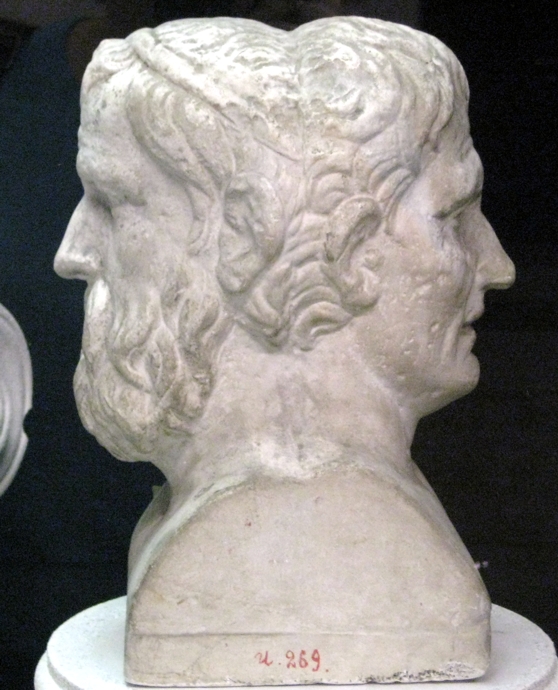Under every stone lurks a politician.
Meaning of the quote
The quote suggests that politicians are everywhere, even in the most unexpected places. It means that politicians can be found in all aspects of life, even in the most hidden or insignificant areas. The quote is a way of saying that politicians are constantly trying to gain power and influence, even in the most ordinary and everyday situations.

About Aristophanes
Aristophanes was an Ancient Greek comic playwright from Athens and a poet of Old Attic Comedy. He wrote 40 plays, of which 11 survive today, providing the most valuable examples of Old Comedy. He was known as the “Father of Comedy” and his plays are used to define the genre.
More quotes from Aristophanes
A man’s homeland is wherever he prospers.
Classical Athenian comic playwright (c. 446 - c. 386 BC)
Hunger knows no friend but its feeder.
Classical Athenian comic playwright (c. 446 - c. 386 BC)
Open your mouth and shut your eyes and see what Zeus will send you.
Classical Athenian comic playwright (c. 446 - c. 386 BC)
These impossible women! How they do get around us! The poet was right: Can’t live with them, or without them.
Classical Athenian comic playwright (c. 446 - c. 386 BC)
Let each man exercise the art he knows.
Classical Athenian comic playwright (c. 446 - c. 386 BC)
Shrines! Shrines! Surely you don’t believe in the gods. What’s your argument? Where’s your proof?
Classical Athenian comic playwright (c. 446 - c. 386 BC)
Characteristics of a popular politician: a horrible voice, bad breeding, and a vulgar manner.
Classical Athenian comic playwright (c. 446 - c. 386 BC)
Wise people, even though all laws were abolished, would still lead the same life.
Classical Athenian comic playwright (c. 446 - c. 386 BC)
Your lost friends are not dead, but gone before, advanced a stage or two upon that road which you must travel in the steps they trod.
Classical Athenian comic playwright (c. 446 - c. 386 BC)
You should not decide until you have heard what both have to say.
Classical Athenian comic playwright (c. 446 - c. 386 BC)
Evil events from evil causes spring.
Classical Athenian comic playwright (c. 446 - c. 386 BC)
The wise learn many things from their enemies.
Classical Athenian comic playwright (c. 446 - c. 386 BC)
Men of sense often learn from their enemies. It is from their foes, not their friends, that cities learn the lesson of building high walls and ships of war.
Classical Athenian comic playwright (c. 446 - c. 386 BC)
High thoughts must have high language.
Classical Athenian comic playwright (c. 446 - c. 386 BC)
Under every stone lurks a politician.
Classical Athenian comic playwright (c. 446 - c. 386 BC)
Why, I’d like nothing better than to achieve some bold adventure, worthy of our trip.
Classical Athenian comic playwright (c. 446 - c. 386 BC)
Love is simply the name for the desire and the pursuit of the whole.
Classical Athenian comic playwright (c. 446 - c. 386 BC)
Quickly, bring me a beaker of wine, so that I may wet my mind and say something clever.
Classical Athenian comic playwright (c. 446 - c. 386 BC)
You cannot teach a crab to walk straight.
Classical Athenian comic playwright (c. 446 - c. 386 BC)
A man may learn wisdom even from a foe.
Classical Athenian comic playwright (c. 446 - c. 386 BC)